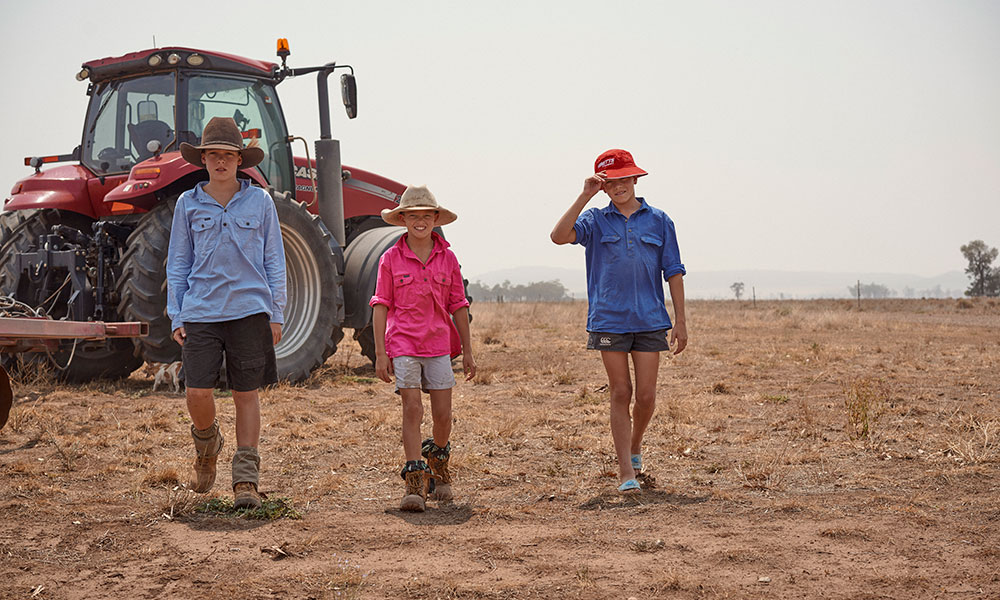
For the past several years, Australian farming families have faced it all. From severe drought and bushfires, to repeated extreme flooding events. In many cases, the resulting damage and loss has been catastrophic, pushing a huge number of farms to the brink of collapse.
One of the most significant impacts has been to rural water infrastructure, with the destruction of tanks and piping not only preventing farming families from sustaining their operations, but also accessing clean water necessary for survival.
Without a reliable water source, basic daily activities become almost impossible, financial pressures mount, and the mental and physical toll grows. Here, we explore the profound effects our farming families face when they don’t have access to clean drinking water.
Reduced Quality of Life: The Day-to-Day Struggles
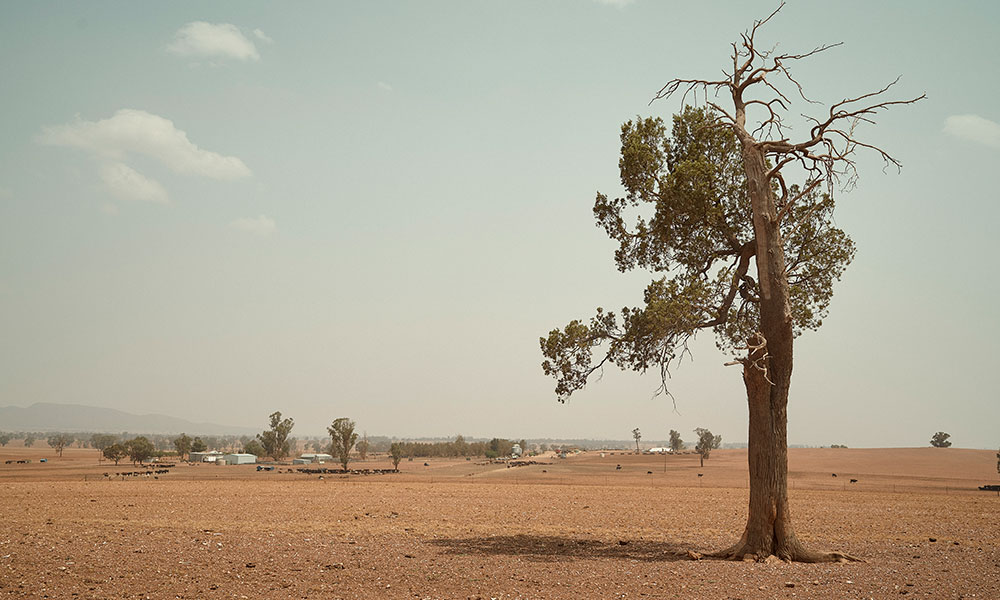
With many farms based in remote locations, connection to ‘town water’ is not possible, so farmers rely on their own tanks and dams to provide the water needed to run their homes. If there is no rainfall, or no tanks to preserve the rainwater does fall, everyday tasks like bathing, washing clothes and dishes, or flushing the toilet become monumental challenges.
When you consider the nature of farming work and rural life—physically strenuous, dusty, often dirty work—a shower at the end of the day is not only welcome, it’s absolutely necessary. One parent shared how the arrival of a new water tank allowed them to “run a bath for my son at night without as much anxiety. Bathing is his favourite activity.”
Another farmer shared, “During the drought it was really tough, watching helplessly as the garden died. But depressing when we had to curtail flushing our toilet because water was so scarce.” This is the stark reality of water scarcity in the bush. For these families, having to ration or even go without water for essential tasks is an everyday fear.
Financial Strain: The Hidden Cost of Water Scarcity
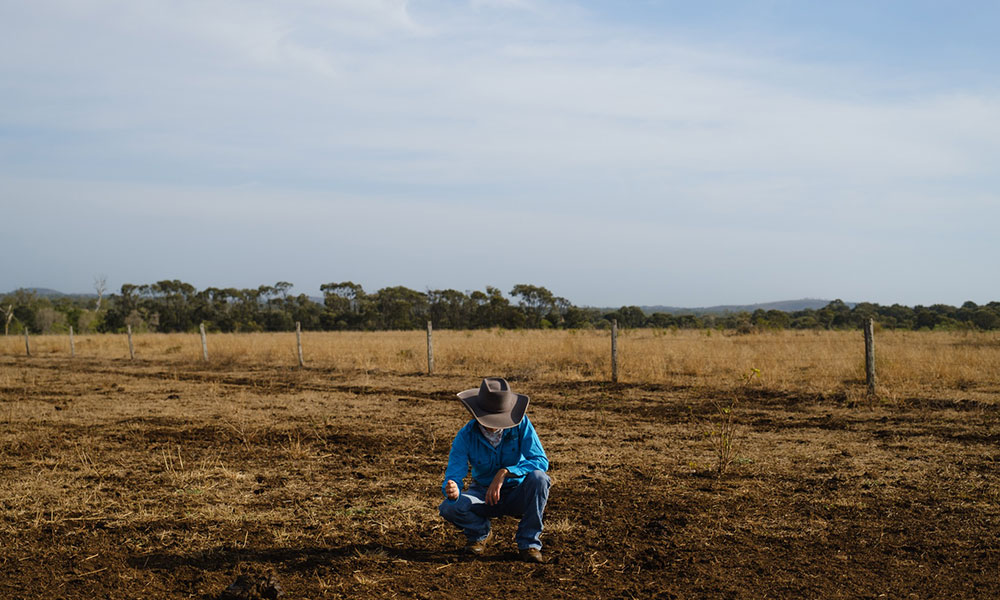
When the tanks and taps run dry, there is only one solution for farming families—and it’s an unwelcome one. The financial burden of purchasing bottled water or arranging emergency deliveries adds another layer of stress to those facing water scarcity. For those in the grips of drought, the need to buy drinking water competes with other critical expenses, like feeding livestock. As one farmer noted, a tank full of water “saved us from having to buy drinking water when money was going to feed cattle.” The ability to harvest and store rainwater helps alleviate this financial strain, allowing families to allocate resources more effectively.
Vulnerability to Future Disasters
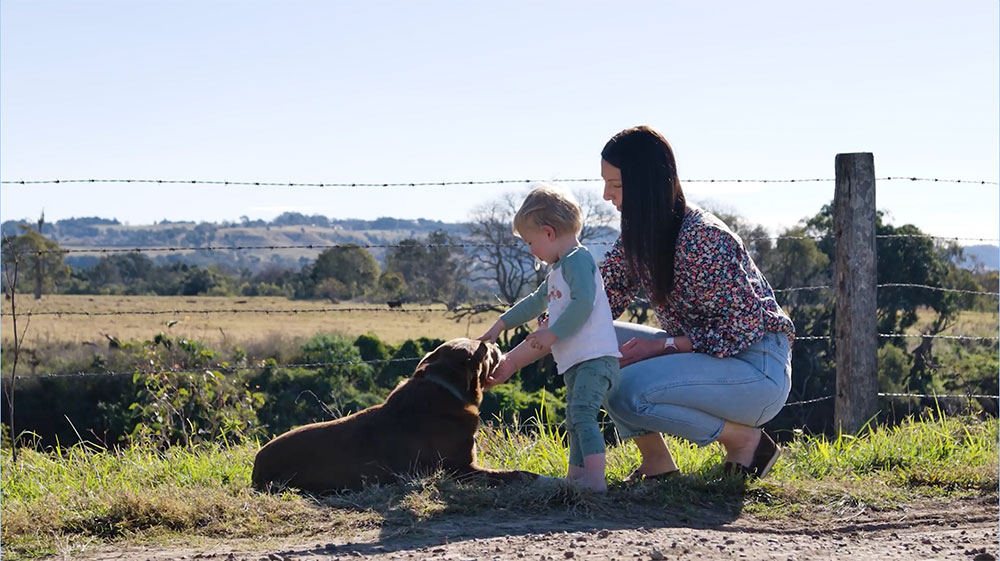
While emergency water deliveries and purchased water can keep disaster at bay for a time, without adequate water storage, farming families are left vulnerable to future droughts and changing conditions. This vulnerability directly affects their ability to sustain their farms and be better prepared for the long term. As one farmer explained, the installation of functioning water infrastructure offers “peace of mind knowing that we have adequate domestic water storage in dry times, in an otherwise very challenging time.” This peace of mind is important for farming families, especially as they plan and prepare for future challenges.
Health and Hygiene: The Physical Consequences
Health and hygiene are compromised when clean water is scarce. Families often resort to using creek or bore water, which is more than just unpleasant, it can also be contaminated and lead to illness. Rural Aid counsellors have even heard stories of farmers forgoing their own bath at night so their children could go to school clean the following day.
The ability to access clean water isn’t just about necessity, it’s about overall wellbeing. Upon receiving a donated tank one farmer said: “It has allowed us to use clean rainwater in the house for drinking as well as other usual house water usages. We no longer have to use creek water that was making us all not well.”
Mental Wellbeing: The Unseen Burden
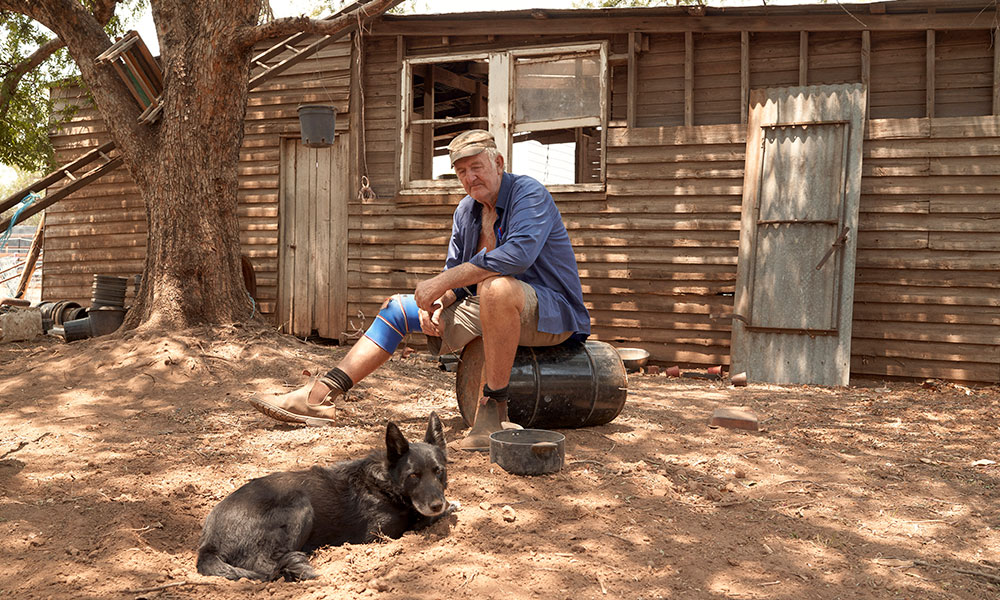
“Until you turn a tap on, and nothing comes out you cannot experience the true impact not having water has on a person or family.”
The mental toll of water scarcity is always front of mind for farming families, even in wet seasons. The constant worry of whether there will be enough clean water tomorrow is a heavy burden. As one farmer expressed after receiving a water tank from Rural Aid, “The water tank was a great boost, not only in a practical way by having water to drink, wash, and shower, but from a mental state that gave us a great uplifting boost.”
Rural Aid CEO, John Warlters, said the Rural Aid Water Delivery Program aimed to create more sustainable domestic water practices for future generations.
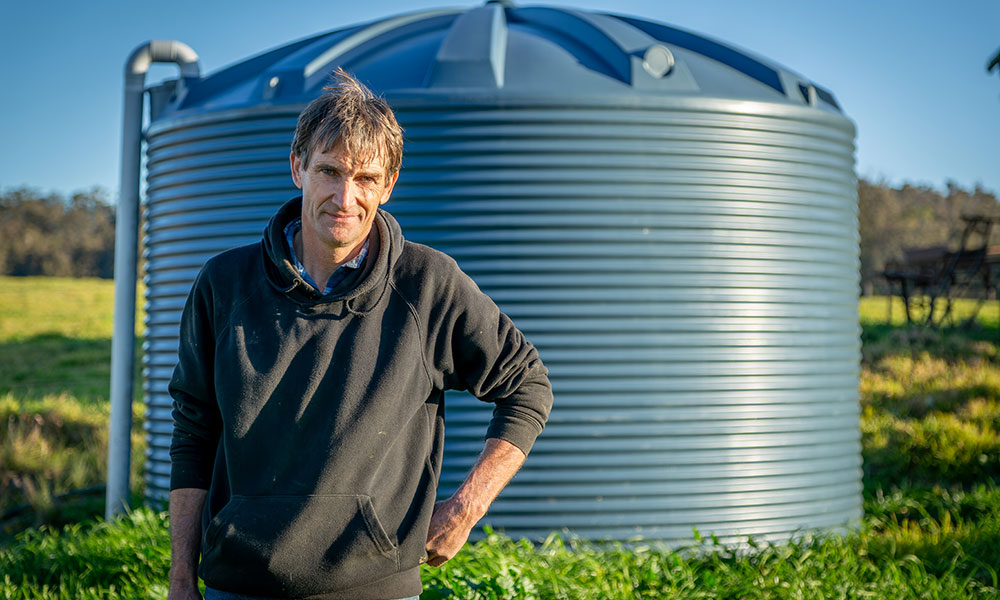
“A full tank of water is a lifeline for farming families. Knowing that basic needs can be met without the constant fear of running dry offers them much-needed relief in stressful times.”
The tanks Rural Aid deliver don’t just provide water—they also provide hope, security, and inspiration to rebuild and recover. As one farmer put it, “This was more than a tank, this was encouragement not to give up.”
